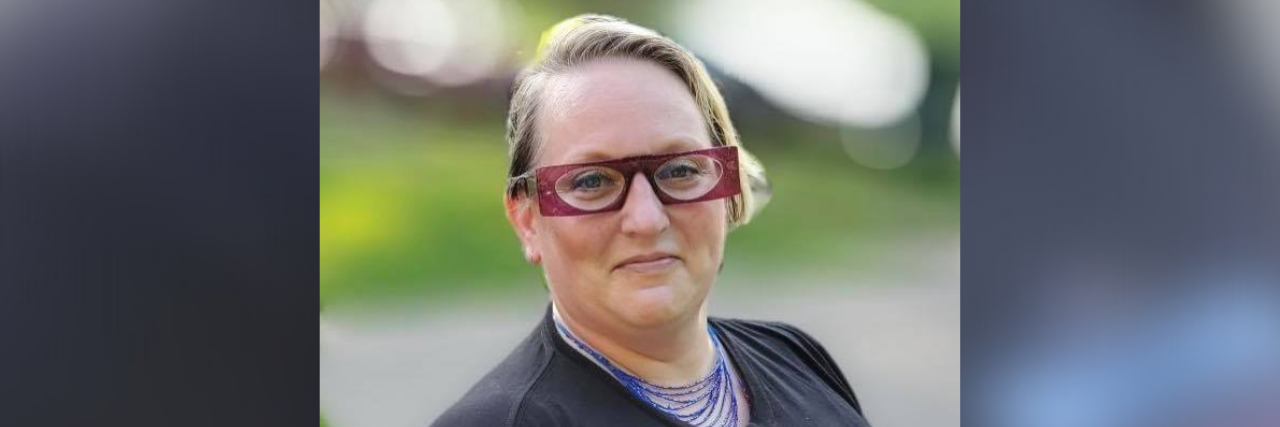Almost five years ago, I was diagnosed with bladder cancer at 40 years of age.
An old, chain-smoking, white male disease. I got it how? To this date, no one I’ve talked to can really figure it out. No family history. No risk factors. I just was “unlucky” enough to get it.
At the time of diagnosis, I did not even know that you could get cancer in your bladder. In fact, most people in my life did not know about this cancer. Most people I have met since my diagnosis did not know about bladder cancer. In fact, most people are unaware of bladder cancer until they or a loved one are diagnosed with it.
Bladder cancer is consistently within the top 10 most common cancers in the world. The WHO currently has it as the 10th most common cancer from the 2020 statistics. How is it even possible that so many are unaware of bladder cancer? Why is no one talking about it?
The stereotype that it is an old, chain-smoking, white male disease is not considered widespread. Most of the past research has been based on the experiences of the stereotypical bladder cancer patient — men. The research has never considered the experiences of women and the fact that women have different anatomy. I will even be bold enough to hypothesize that in past decades women were dying of bladder cancer without ever being diagnosed with it. No research has been taken into account the experiences of minorities either.
Bladder cancer research is grossly underfunded, with very few developments, improvements and treatment options until recently. Those that currently exist and are FDA-approved here in the US are chemically and/or surgically devastating to the body and/or require ongoing surveillance and treatments throughout the remainder of a person’s life. No matter what treatment you have with bladder cancer, your life is forever changed, forever impacted, immensely.
Still, no one is talking about bladder cancer! The few that are are not shouting about it quite loud enough for my tastes. So I decided early on to shout it from the rooftops!
When I was diagnosed in August 2016 after at least two years of trying to get medical assistance, I pulled out all my researching tricks and tried to learn as much as I could about bladder cancer. I began learning that my delay in diagnosis and treatment was not uncommon for young people and women. I understood it was rare for someone my age to get bladder cancer. I quickly knew that I would need to share my story. It was not even a choice. I felt compelled to share it. I had to do it.
I organized a fundraiser for cancer research. I asked friends, family, acquaintances and coworkers to wear the bladder cancer awareness colors — blue, purple and marigold yellow — and to tag me in social media posts on the day of my surgery. Eventually, I started a blog, got involved with my local ostomy association and writing for various platforms about my experiences with bladder cancer and ostomies. Recently, I have even begun getting requests for speaking engagements.
September 23, 2016, is the date that changed my life. I had my life-saving surgery and was technically cancer-free. I had a radical cystectomy with radical hysterectomy and ileal conduit/stoma placement for a urostomy. I now live without a bladder, ovaries, fallopian tubes, uterus, pelvic lymph nodes and part of my cervix. I have a medical appliance, a urostomy, placed on my abdomen.
Due to complications from surgery, I spent about two months either in the hospital or a rehabilitation facility before returning home just in time to celebrate my birthday and Thanksgiving. The week after Thanksgiving, I saw the oncologist in the office for the first time, got my port and proceeded with Dense Dose-MVAC chemotherapy. The beginning of a grueling three month period, which cumulated in being admitted to the hospital for a blood transfusion.
After being off work for about eight months, I barely returned in time to keep my position. I really did not have the luxury to heal or regain strength, energy or endurance completely. The first year and a half were immensely challenging, and things have not been smooth sailing since then either. There have been follow-ups, setbacks, permanent side effects and secondary health issues that have persisted.
Some days my battle with bladder cancer seems never-ending. Yet, it will always be better than the alternative.
Still, I cannot but continuously wonder… why isn’t anyone talking about bladder cancer?
Don’t wait to be diagnosed with bladder cancer to learn about the symptoms and risk factors.
If you have or had bladder cancer, do not be ashamed of your experience. Use your voice. Share your story. By sharing your story, you help yourself heal and help others going through the same diagnosis and treatment and raise awareness to the world about the risks and effects of bladder cancer.
Original image via contributor

